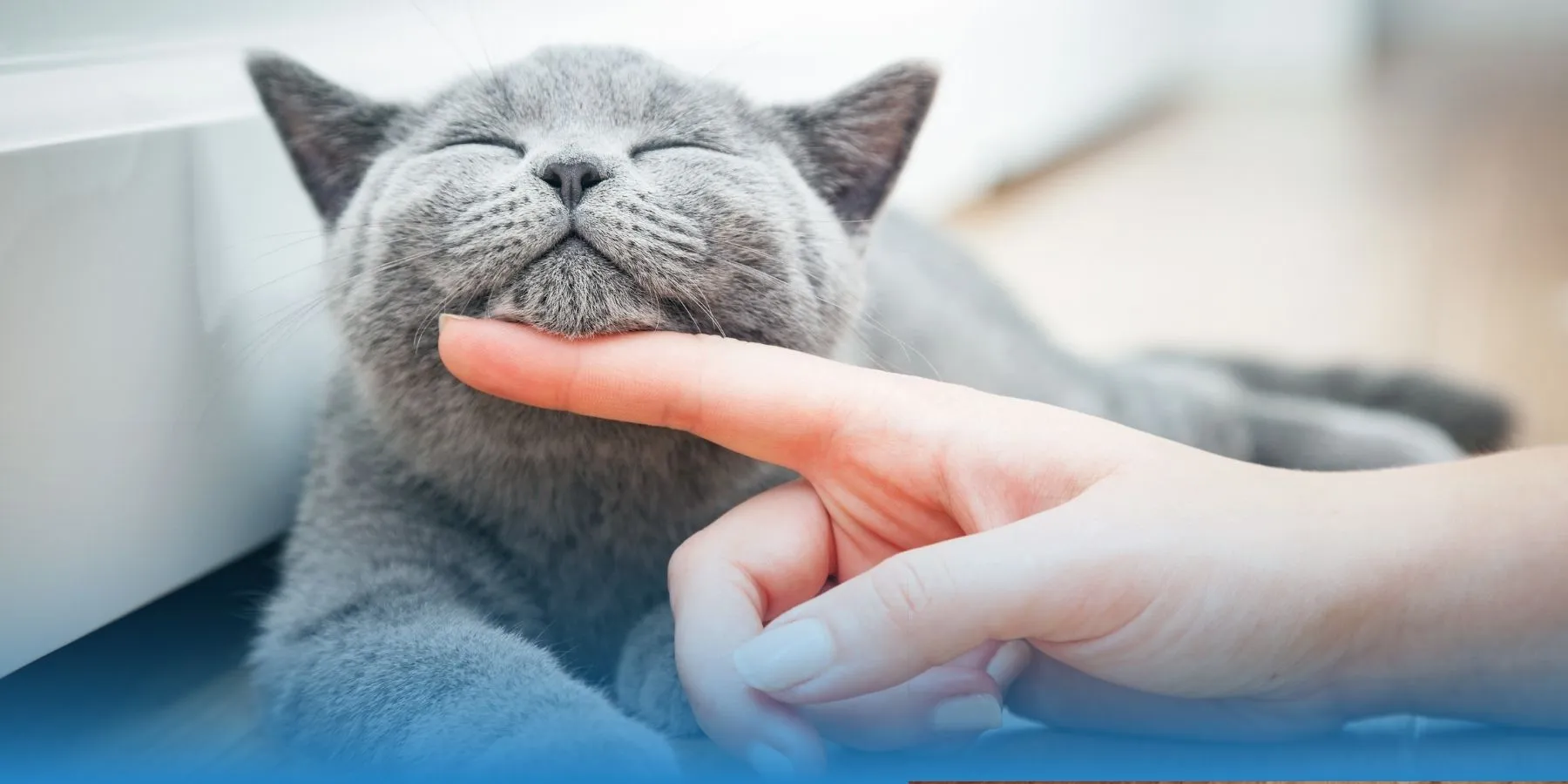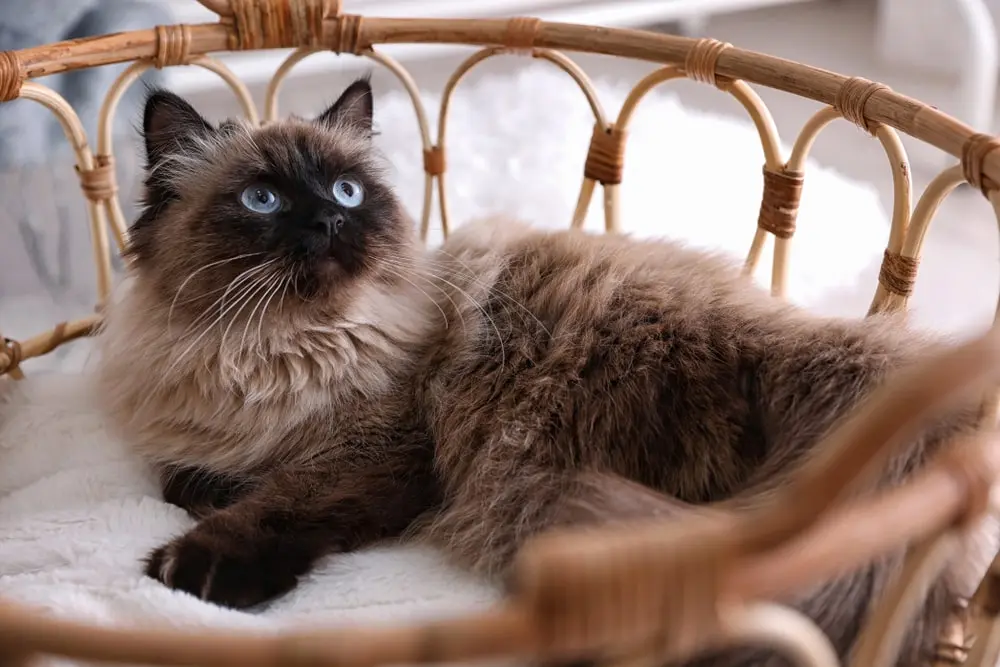BREED SPOTLIGHT
What Cat Breeds Are Hypoallergenic? Top 8 Breeds
Do you want a cat but you or one of your loved ones is allergic? It’s estimated that about 10% of the population is allergic to cats. But what exactly are you allergic to?1
There’s a protein in cats’ saliva called Fel d 1 that causes allergic reactions in many humans.1 Because they lick themselves to groom, this protein is all over cat’s bodies. When cats shed their fur, they’re leaving protein-soaked hairs around the house. Grooming your cat regularly may reduce the dander they shed, but won’t make them completely hypoallergenic.
There’s no such thing as an allergen-free cat, but hypoallergenic cats produce fewer proteins and shed less than the average cat. So they’re leaving less of the allergen around the house and on you when you give them kitty cuddles.
Let’s look at some of the most popular hypoallergenic cat breeds available and the common health conditions you should look out for. We’ll do a deep dive into the most hypoallergenic cats and other breeds that are typically safe for people with allergies.
Most Hypoallergenic
These four cat breeds are some of the top hypoallergenic cats and are ideal for pet lovers with highly sensitive cat allergies because they produce significantly less of the Fed d 1 protein that causes allergic reactions in humans.
1. Balinese-Javanese
Resembling the popular Siamese breed, the Balinese (also called Javanese) has a silky smooth coat and a luxurious tail plume. But their fluffy appearance isn’t really indicative of their overall allergy friendliness. The Balinese is considered one of the least shedding cats among long-haired breeds. Like the Siamese, they’re talkative, have an easy-going personality, and are considered hypoallergenic.
Balinese cats are beautiful, but like all pets, this breed is prone to a few health problems. Here’s what to watch out for:2
- Amyloidosis
- Asthma
- Progressive retinal atrophy
- Hyperesthesia
- Lymphoma
- Heart defects
2. Siberian
With its bushy coat and extra fluffy tail, this large and powerful cat breed isn’t one you would think to be hypoallergenic. Though a rare breed in the U.S., they’re gaining popularity for their lack of irritating dander and their affectionate, intelligent temperament. The Siberian is also one of few cat breeds that doesn’t mind getting a little wet and likes to play in water.
Siberian cats are relatively healthy cats, but there are two health conditions that pet parents should be wary of:3
3. Devon Rex
Resembling a hairless breed, the Devon rex is sometimes referred to as a “poodle that purrs” because of their short curly hair and wagging tail when happy. Similar to its canine counterpart, the poodle, the Devon rex is considered hypoallergenic. This breed is usually on the smaller side, but makes up for it with their large and sociable personality.
The Devon rex breed is predisposed to a few health problems:
- Devon rex myopathy
- Cardiomyopathy
- Fading kitten syndrome
4. Sphynx
The skin of a Sphynx is said to resemble warm suede, not unlike their warm, affectionate personality. Similar to other hairless cat breeds, Sphynx are one the most allergy-friendly breeds. Contrary to popular belief, most cats of this breed are not completely hairless, although they appear to be bald all over. That’s because their fur is so fine and short, it usually can’t be seen by the human eye. Shedding is almost nonexistent with these types of cats.
Sphynx cats are selectively bred with the intention of minimizing their health problems. However, they’re genetically predisposed to two health concerns:
- Cardiomyopathy
- Obesity
Pet Insurance Can Help Cover Breed-Specific Health Issues
Other Hypoallergenic Breeds
The following breeds are also considered some of the best hypoallergenic cats and make comfortable companions for most people with moderate to low allergy sensitivities to felines.
5. Siamese
One of the most recognizable of all cat breeds is hypoallergenic. The signature Siamese extra-short hair limits shedding and their beautiful coat comes in four traditional colors. Personality-wise, the Siamese is popular for their people-loving nature and strong communication skills. They’re very talkative, but their adorable baby blue eyes make it hard for their owners to be annoyed.
Siamese cats can make precious pets, but they're prone to a handful of health concerns. Here’s what Siamese parents may want to watch out for:6
- Viral infections
- Amyloidosis
- Cardiomyopathy
- Hip dysplasia
- Asthma
- Progressive retinal atrophy
6. Bengal
A draw of the Bengal cat is their wild, untamed appearance that resembles a leopard. Indeed, they’re great hunters, but the large athletic breed is also very playful and great for families with kids. Not only are they hypoallergenic, but they have a trait called “glistening” that gives their coat a shiny, glimmering finish.
Bengal cats are genetically predisposed to a few medical conditions you’ll want to watch out for:7
- Cardiomyopathy
- Progressive retinal atrophy
- Anemia
- Dental disease
7. Burmese
With their natural tendencies to follow their owners to give and receive affection, Burmese cats are almost dog-like. In fact, many cats of this breed learn to play fetch. Their coat is generally shorter and solid-colored with subtle variations in shading.
Burmese cats are generally healthy. But there are two rare health conditions that cat parents need to be aware of:8
- Acute teething disorder
- Hypokalaemia
8. Ocicat
This spotted, wild-looking cat is another distant relative of the Siamese. Though they’re not completely hypoallergenic, the short-haired Ocicat comes in several distinct colors, each with leopard-like spots that distinguish it from other feline breeds. This cat is smart and sociable, getting along well with people and other pets alike.
The Ocicat breed is predisposed to a few different genetic diseases. Here’s what pet parents should watch out for:9
- Amyloidosis
- Cardiomyopathy
- Progressive retinal atrophy
Protect Your Hypoallergenic Cat With Cat Insurance
Looking to bring home a new hypoallergenic kitty? With the cost of cat ownership on the rise, consider protecting them with cat insurance from MetLife Pet Insurance. Our cat insurance policies can provide the coverage and care your kitties deserve. Get your free quote today.
We Can Help Protect Your Cat
Dr. Hunter Finn is an integrative veterinary expert first, and social media star second. America’s favorite veterinarian owns Pet Method in McKinney, Texas, where he cares for pets while prioritizing their emotional well-being. When he’s not at his clinic, he’s starring in viral videos on TikTok (2 million followers) and Instagram (500K followers) — where he’s been known to snuggle puppies and conquer the latest dance trends.
Want to learn more?
1 “10 Hypoallergenic Cats,” petMD
2 “What to Know About a Balinese Cat,” Fetch by WebMD
3 “What To Know About a Siberian Cat,” Fetch by WebMD
4 “What to Know About a Devon Rex,” Fetch by WebMD
5 “What to Know About a Sphynx Cat,” Fetch by WebMD
6 “What to Know About a Siamese Cat,” Fetch by WebMD
7 “Bengal Cats: What to Know,” Fetch by WebMD
8 “What to Know About Burmese Cats,” Fetch by WebMD
9 “What to Know About Ocicats,” Fetch by WebMD
Coverage underwritten and issued by Independence American Insurance Company (“IAIC”), a Delaware insurance company, headquartered at 11333 N Scottsdale Rd, Ste 160, Scottsdale, AZ 85254 or Metropolitan General Insurance Company (“MetGen”), a Rhode Island insurance company, headquartered at 700 Quaker Lane, Warwick, RI 02886. Coverage subject to restrictions, exclusions and limitations. Application is subject to underwriting review. See policy or contact MetLife Pet Insurance Solutions LLC for details. MetLife Pet Insurance Solutions LLC is the policy administrator for this coverage. The entity may operate under an alternate, assumed, and/or fictitious name in certain jurisdictions as approved, including MetLife Pet Insurance Services LLC (New York and Minnesota), MetLife Pet Insurance Solutions Agency LLC (Illinois).
L0523031741[exp0525][All States][DC,GU,MP,PR,VI]




